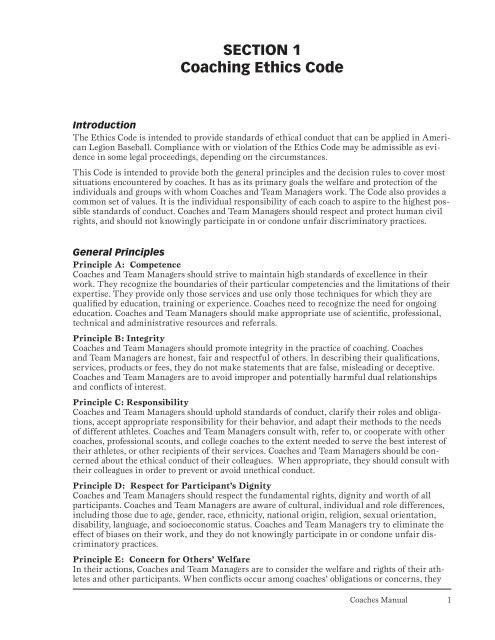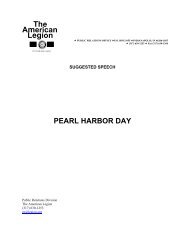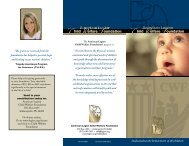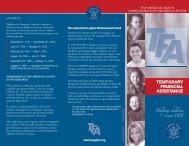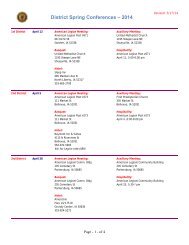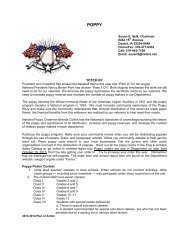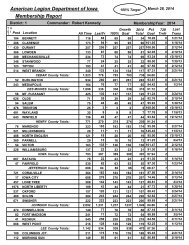Coach's Manual - The American Legion
Coach's Manual - The American Legion
Coach's Manual - The American Legion
You also want an ePaper? Increase the reach of your titles
YUMPU automatically turns print PDFs into web optimized ePapers that Google loves.
SECTION 1Coaching Ethics CodeIntroduction<strong>The</strong> Ethics Code is intended to provide standards of ethical conduct that can be applied in <strong>American</strong><strong>Legion</strong> Baseball. Compliance with or violation of the Ethics Code may be admissible as evidencein some legal proceedings, depending on the circumstances.This Code is intended to provide both the general principles and the decision rules to cover mostsituations encountered by coaches. It has as its primary goals the welfare and protection of theindividuals and groups with whom Coaches and Team Managers work. <strong>The</strong> Code also provides acommon set of values. It is the individual responsibility of each coach to aspire to the highest possiblestandards of conduct. Coaches and Team Managers should respect and protect human civilrights, and should not knowingly participate in or condone unfair discriminatory practices.General PrinciplesPrinciple A: CompetenceCoaches and Team Managers should strive to maintain high standards of excellence in theirwork. <strong>The</strong>y recognize the boundaries of their particular competencies and the limitations of theirexpertise. <strong>The</strong>y provide only those services and use only those techniques for which they arequalified by education, training or experience. Coaches need to recognize the need for ongoingeducation. Coaches and Team Managers should make appropriate use of scientific, professional,technical and administrative resources and referrals.Principle B: IntegrityCoaches and Team Managers should promote integrity in the practice of coaching. Coachesand Team Managers are honest, fair and respectful of others. In describing their qualifications,services, products or fees, they do not make statements that are false, misleading or deceptive.Coaches and Team Managers are to avoid improper and potentially harmful dual relationshipsand conflicts of interest.Principle C: ResponsibilityCoaches and Team Managers should uphold standards of conduct, clarify their roles and obligations,accept appropriate responsibility for their behavior, and adapt their methods to the needsof different athletes. Coaches and Team Managers consult with, refer to, or cooperate with othercoaches, professional scouts, and college coaches to the extent needed to serve the best interest oftheir athletes, or other recipients of their services. Coaches and Team Managers should be concernedabout the ethical conduct of their colleagues. When appropriate, they should consult withtheir colleagues in order to prevent or avoid unethical conduct.Principle D: Respect for Participant’s DignityCoaches and Team Managers should respect the fundamental rights, dignity and worth of allparticipants. Coaches and Team Managers are aware of cultural, individual and role differences,including those due to age, gender, race, ethnicity, national origin, religion, sexual orientation,disability, language, and socioeconomic status. Coaches and Team Managers try to eliminate theeffect of biases on their work, and they do not knowingly participate in or condone unfair discriminatorypractices.Principle E: Concern for Others’ WelfareIn their actions, Coaches and Team Managers are to consider the welfare and rights of their athletesand other participants. When conflicts occur among coaches’ obligations or concerns, theyCoaches <strong>Manual</strong> 1


